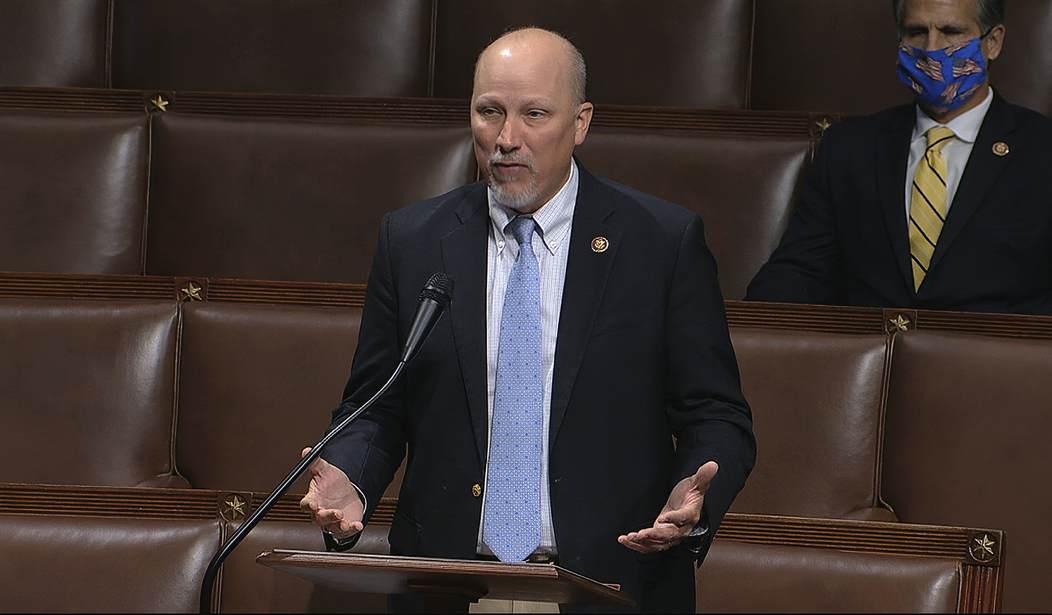Top News
Texas Rep. Chip Roy proposes change to conference rules in Speaker’s race

Today is voting day for House Republicans. A new speaker will be voted on by the Republican conference. A formal debate was held behind closed doors Tuesday night with the two leading candidates – House Majority Leader Steve Scalise and House Judiciary Chairman Jim Jordan.
The speaker race pits two distinctly different personalities against each other. Scalise is a loyal Republican worker bee who had a sometimes strained relationship with former Speaker Kevin McCarthy. Jim Jordan is a founder of the Freedom Caucus who relished being an antagonist to more establishment Republican types like McCarthy, with whom Jordan now has a good relationship. Jordan was once a leading voice for The Resistance wing of the Republican Party in the House. That has changed with time. Jordan blends in now with House leadership, as a general rule.
From all reporting, neither man has a lock on enough support to win the vote for speaker, going into the conference vote. No one wants a long drawn-out vote-a-thon as happened last time when McCarthy became speaker. It’s unclear how quickly a vote can be taken and a clear winner emerges.
Enter Rep. Chip Roy (R-TX). He is proposing a rule change during the conference vote that will make the vote a little harder. Because, of course. But, the change would assure unity of the conference before the nomination went to a vote on the floor of the House and that would be a good thing. It would avoid the spectacle that happened last time around, seen on C-SPAN and media outlets around the world.
A candidate has to have at least 217 votes – four less than the total number of Republican members. It eliminates the simple majority vote rule in the speaker election.
If candidates fail to reach 217 votes but they receive at least 185 votes, they would be subjected to additional rounds of questioning from the conference, which would then vote again. And if candidates fail to obtain at least 185 votes, the entire nominating process would restart.
A discussion of the proposed rule change was expected to be held Wednesday. “I think we are going to have a serious conversation about how we ensure that we have 218 behind that individual on the floor, and that’s what we’re going to debate tomorrow,” Roy said.
Supporters of the rule change said the move would ensure GOP unity before bringing a nomination to the House floor, where Republicans govern by a razor-thin margin.
“I think especially in a time of uncertainty, we need to have a united front going to the House floor,” Cammack said. “We need to have these very difficult family discussions behind closed doors, and I don’t care if we do roll calls behind closed doors, but we shouldn’t be playing this out in front of C-SPAN and the rest of the country.”
If Republicans avoid looking like they are not organized enough to govern, that would be a bonus. How do they expect to hold on to the House in 2024 if they look inept? Both Scalise and Jordan are liked by a majority of Republicans and both men would probably do a good job as speaker. Surely Republicans can get this done with as little chaos as possible. *fingers crossed*
There is some pushback on the rules change, though.
However, Rep. Don Bacon, R-Neb., who backs the potential rule change, said there was disagreement in the room as critics feared it would delay the ultimate selection of a new speaker. “Others think if you get it on the floor, it forces quicker action,” Bacon said.
McCarthy, who asked that he not be nominated for the job, seems to be supporting Jim Jordan, though not with a formal endorsement. Old feelings that Scalise wasn’t always loyal to McCarthy are present as are past grievances between the two men.
Jordan is sounding firm on fiscal policy leadership, if he is the speaker. That appeals to the Freedom Caucus members in particular.
Several lawmakers said Jordan told the conference Tuesday that if he is elected speaker, his plan would involve passing a “clean” continuing resolution to extend funding through next April once the current stopgap spending law expires Nov. 17.
Jordan said he “felt good” leaving the forum and said his proposed spending plan would be timed to leverage the 1 percent across-the-board cut that would be triggered in April under a provision in the debt limit law to encourage the completion of appropriations bills.
We’ll see who comes out on top. It’s important that the vote is held on the floor for all to see. Hopefully that happens later today and Republicans can get this behind them.
Read the full article here


















